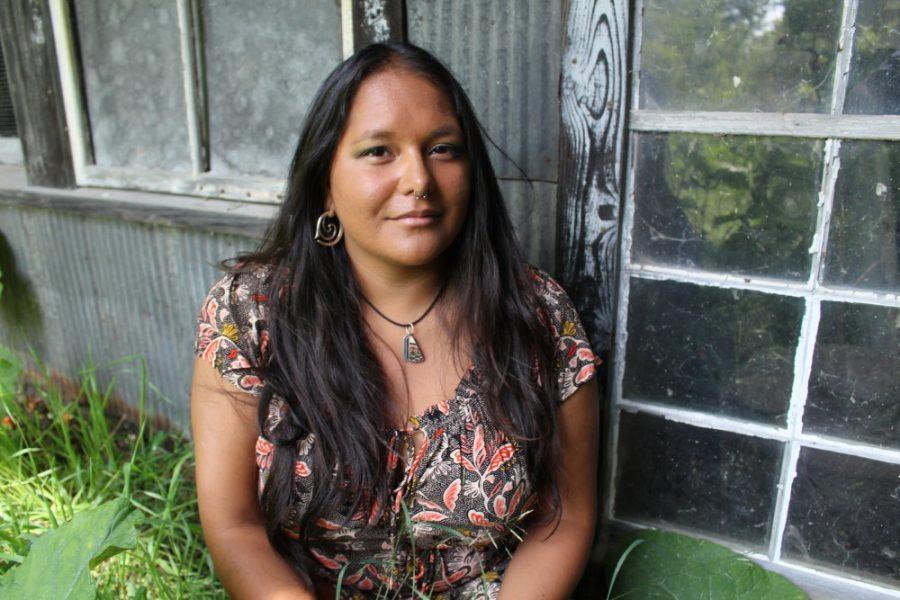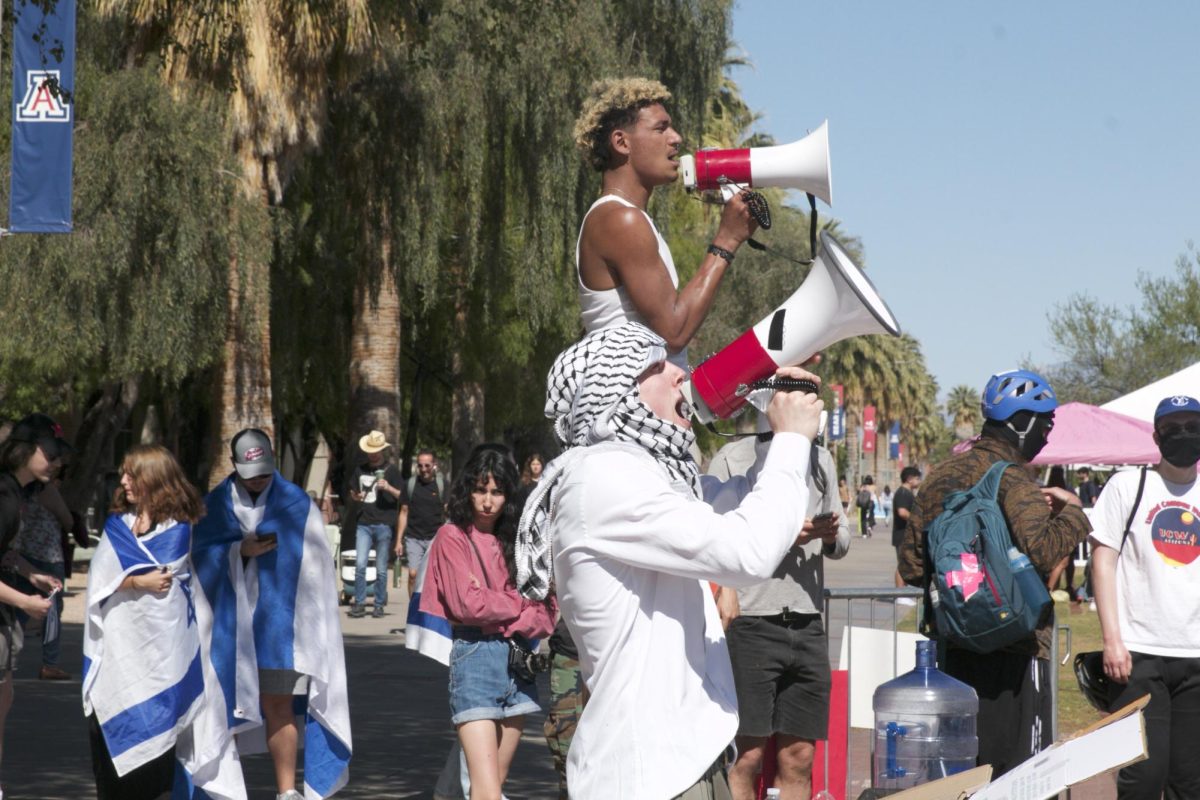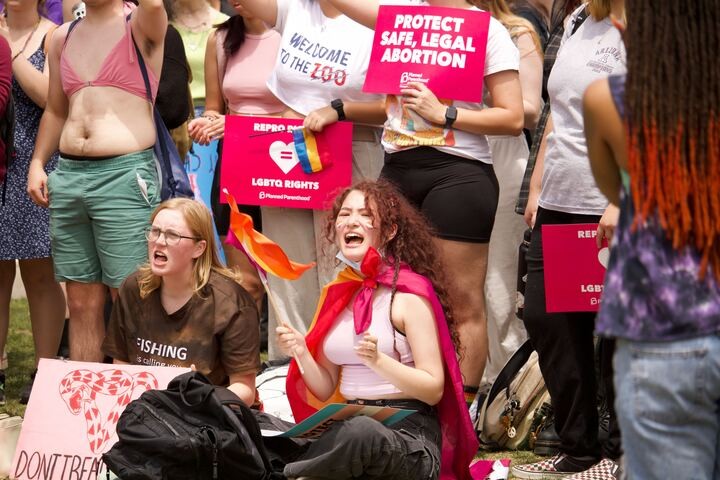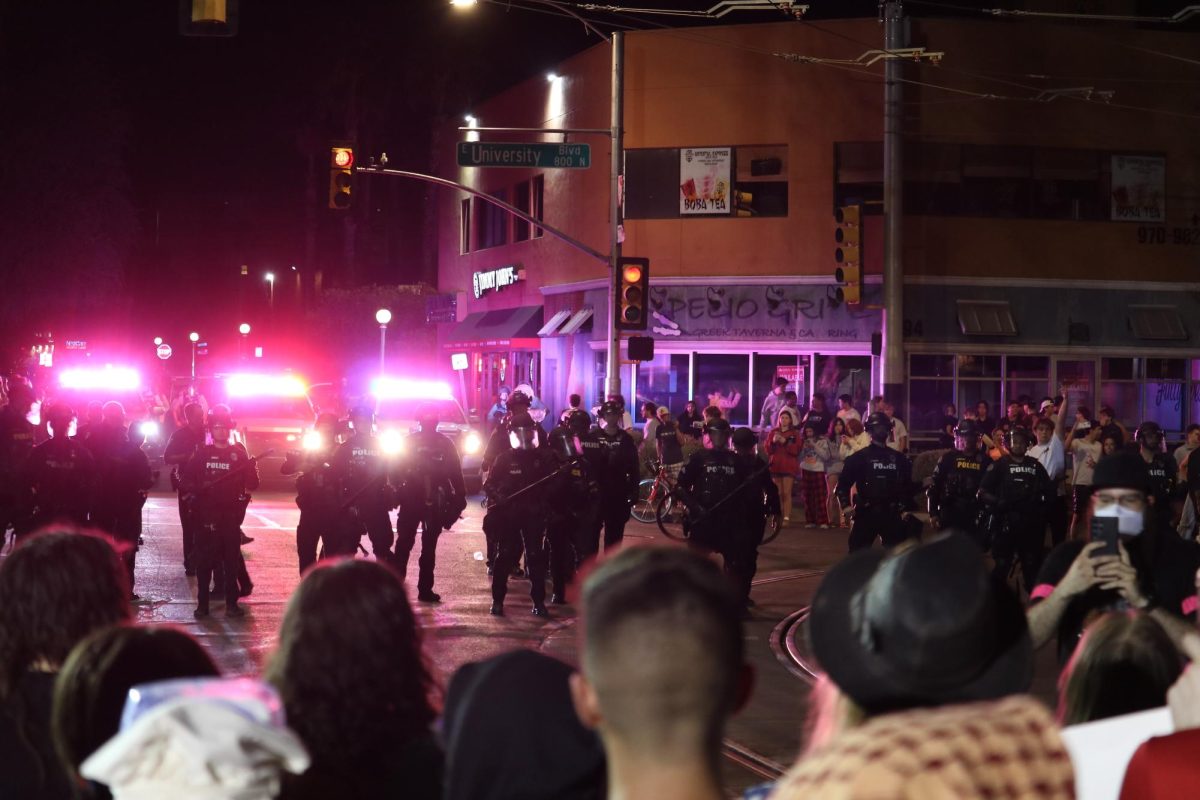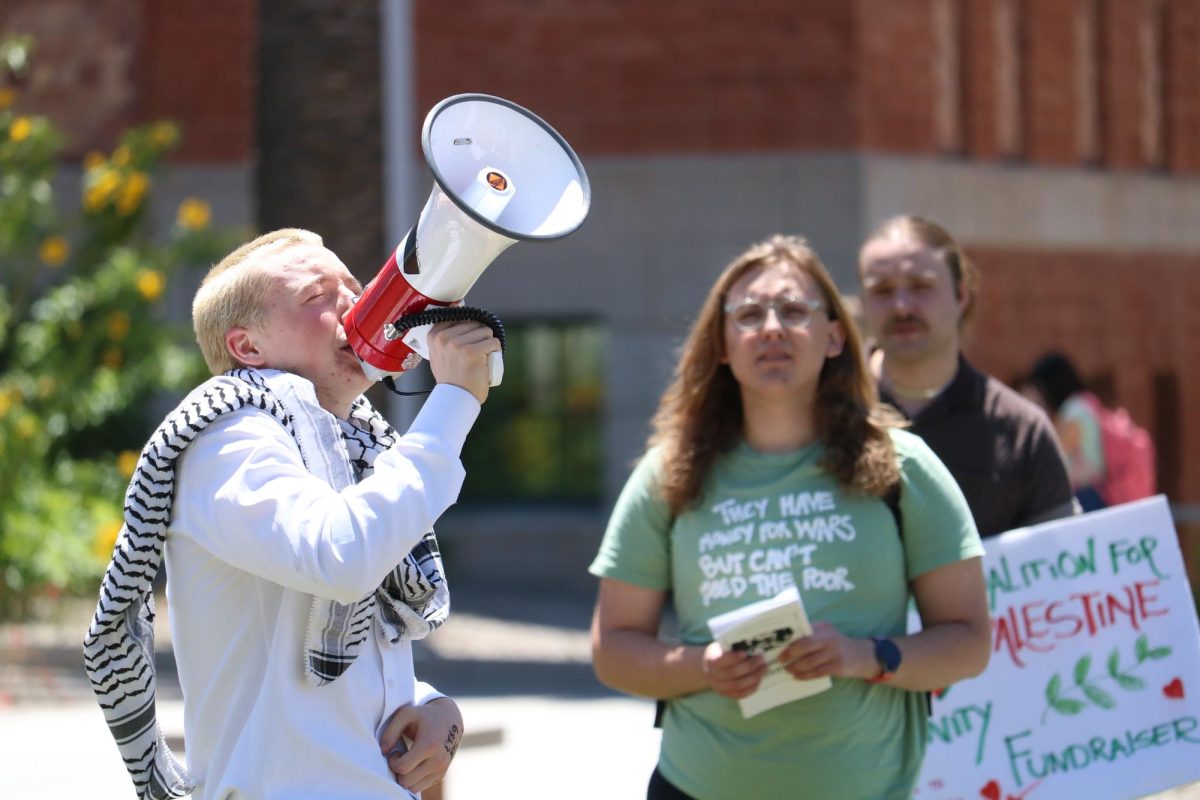In less than a week she’ll graduate with her Masters Degree and in Jan. 2018 she’ll be a married woman. Over the past 31 years of her life, Danielle Geller has been on a journey as a daughter, friend, caregiver, fiance and student that’s been anything but easy.
On her journey she found the importance of writing and those writings have allowed her to thrive in the University of Arizona’s Creative Writing Program.
“I think there’s always this voice in my head, and I think of it as the ‘writing voice’”, Geller said. “It’s basically just the part of my mind that’s always processing the things going on around me or the things in my past that I feel like still influence what I’m going through today…”
Geller said she processes her childhood and her family, but she also tries to escape from thinking so much about the bad things that transpired. She said that writing is better than therapy, it is her help in processing events in her life. Video games have also helped her escape.
Geller’s journey to start writing creatively about her life stories was stirred up by the loss of her mother in 2013. In Fall 2015, she joined the master’s program for Non-fiction Creative Writing at UA.
RELATED: Long-distance discovery: Tracing the origins of Turquoise in Arizona
“After she died I started writing a lot,” Geller said. “I had taken creative writing classes as an undergrad but that was really the reason I decided to come back to school and pursue my MFA in creative writing.”
She has found success from detailing her life and allowing it to live in public. She won the 2016 Rona Jaffe’s Award for her “excellence and promise” in writing. One of her essays was published in The New Yorker where she annotated the first page of the Navajo-English Dictionary with memories from her life.
That essay also exists in an anthology called “This is the Place: Women Writing About Home”. Geller continues to work on her memoir she started in 2014 and has signed with a literary agent.
Geller answered the Daily Wildcat’s questions about her past, present and future journey.
Q: How did you know you wanted to pursue a non-fiction creative writing degree?
A: When I started writing about my mom I knew pretty early that I wanted to write a non-fiction book, I wanted to write a memoir. I was reading a lot of memoirs and the University of Arizona was the only program I applied to. I was like, I want to get into this school and if I don’t I’ll keep working in libraries and I feel really lucky that I got in.
Q: Having the perspective of being Native American here in Arizona, how has that been for you?
A: It’s something that I notice a lot living here because I grew up on the east coast, I grew up with my white family and there weren’t many Native American people who identified that way out east. When I came back to Arizona part of it was because I wanted to be closer to my family and as soon as I got here I would look around and be like, I recognize, I’m surrounded by brown people, it feels like home in a way that a lot of times it didn’t feel like home in central Pennsylvania and I’ve met a lot of indigenous writers living here.
Q: How has the support you’ve found at UA helped you on your journey?
A: My professors are amazing mentors, they’re so supportive. I’ve gotten so much out of this program. I wish I didn’t have to leave, I wish I could just stay in this little cocoon forever. I feel like when I got here I didn’t take full advantage of the friendships that I could’ve had. I came in, I came here to write, go to class, go home, write, work really hard and that’s it.
In my last semester here, I’ve come to really appreciate the people. They’re so important, so then I’m doing a lot more, like getting coffee with friends, going on hikes, that is a really important aspect I feel like I neglected.
Q: What’s been your greatest challenge during your journey at UA?
A: The summer before my second year started, my grandmother got sick, the one who raised me. She had an episode, her dementia got worse, she went into the nursing home and I went home to help my aunt take care of her.
My dad had been sleeping on her couch for years and after she got sick, my family sent my dad to live with me. He’s an alcoholic and my rule was you can’t drink while you’re here and he did drink a lot. So for about six months last year I was trying to teach, work on my book and take care of my dad and the hardest thing was kicking him out and telling him no you can’t come back here.
Q: What are some of the family factors that caused you to “let go” of those relationships in your life?
A: There’s a lot of alcoholism and secrecy and violence in my family and from sort of all directions. I feel like I have always taken on this role in my family, I try to take care of people, I try to take care of my dad and my sisters and my cousin and being forced into that role, but also that being part of my personality. Wanting to do that — and that impulse takes a lot out of you — it’s a hard thing to do all the time. As I get older I’m learning that sometimes you just have to walk away, like you can’t take care of that person so that’s one of the reasons why home is hard for me.
Q: What was it like seeing your essay in the New Yorker? How did that process go?
A: It was pretty terrifying to actually to think about it going out into the world to a certain extent. But at a certain point you just have to let it go and have its own life. I started writing that two years ago and I feel like my writing process is really long. I’ll write something, put it away for six months or more, come back to it and then not send it out and keep holding onto it. It definitely gave me a little more courage to let things go where, at least, let them into the world and see if it’s ready.
RELATED: UA commemorates Native American Heritage Month
Q: How is the process of writing your memoir going? Also, how has it helped you on your journey?
A: That book was about so many different things: it was about my dad, it was about my mom, it was about my sisters, it was about my grandma, the one I grew up with, and trying to parse it out and be like, there are many book projects here potentially and what is the story I’m trying to tell now? The story that is most important to me now and that is my mother’s story.
I didn’t grow up with her. She left us when we were really little and she didn’t like talking about her childhood or growing up on the reservation. She told me don’t ever go back essentially, she got into a fight with her sister, and her parents died in the 90’s. So she didn’t have a connection and didn’t talk to her family and so after she died and I inherited her diaries then all of her things I started learning about this woman who was very different from the things my grandma and my dad had told me growing up.
She was not the person I thought she was and started understanding why she left the reservation, why she left me and my sister, why she couldn’t stay and take care of us. I learned more about her and I am like my mother, I am this person, I can see her in me. So the book right now is really looking at learning who this person is or rediscovering who my mother is.
It’s allowed me to be able to understand the decisions she made and the reasons why she made them. It’s allowed me to let go of a lot of the anger that I had towards her and also it’s helped me make healthier decisions about the relationships that I’ve held onto and letting some of those relationships go.
Follow Shaq Davis on Twitter



